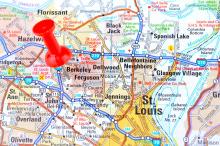geography

I am white. Most of the people near my house are white. This is the way it is for most of us white people in the U.S., and as we continue to be shown, the consequences are both critical and countless.
While the Fair Housing Act of 1968 prohibits all forms of housing discrimination, the U.S. Department of Housing and Urban Development estimates that millions of instances occur each year, thus residential segregation continues to be a common facet of modern day life. To put it simply, white people tend to live by other white people, and it is the way it is by no accident.
Segregated neighborhoods are often reinforced by the practice of racial “steering” by real estate agents, or when landlords deceive potential tenants about the availability of housing or perhaps require conditions that are not required of white applicants. In addition, lending institutions have been shown to treat mortgage applicants differently when buying homes in non-white neighborhoods in comparison to their attempt to purchase in white neighborhoods. As a result of such practices, white people tend to live in a state of residential separateness, for as the most recent U.S. Census date confirms, genuine racial integration is — for the most part — alarmingly rare.
Of course, our own behaviors contribute to our current state of affairs. White people seem to prefer housing located by other white people. As a result, far too many white people are willing (and able) to pay a premium to live in predominantly white neighborhoods. So equivalent housing in white areas commands a higher rent than others, and through the process of bidding-up the costs of housing, many white neighborhoods effectively shut out people of color, because those without white skin are more often unwilling (or unable) to pay the premium price to buy entry into such white neighborhoods. As a result of such white flight and isolation, not only do we witness a rise in racial ignorance and indifference, but it also leads to increased injustice in the form of disproportionate hostility directed at people of color.

FAIRHOPE, Ala. — For the Rev. Jerry Henry, pastor of First Baptist Church of Fairhope, being Southern Baptist is a defining aspect of life.
He embraces the denomination's conservative social values, extols its evangelism — "We reach out to people instead of waiting for them to come to us" — and identifies with its name.
The Rev. Jerry Henry, pastor of First Baptist Church Fairhope, Ala., has struggled with whether the Southern Baptist Convention should change its name to reflect greater geographic diversity.